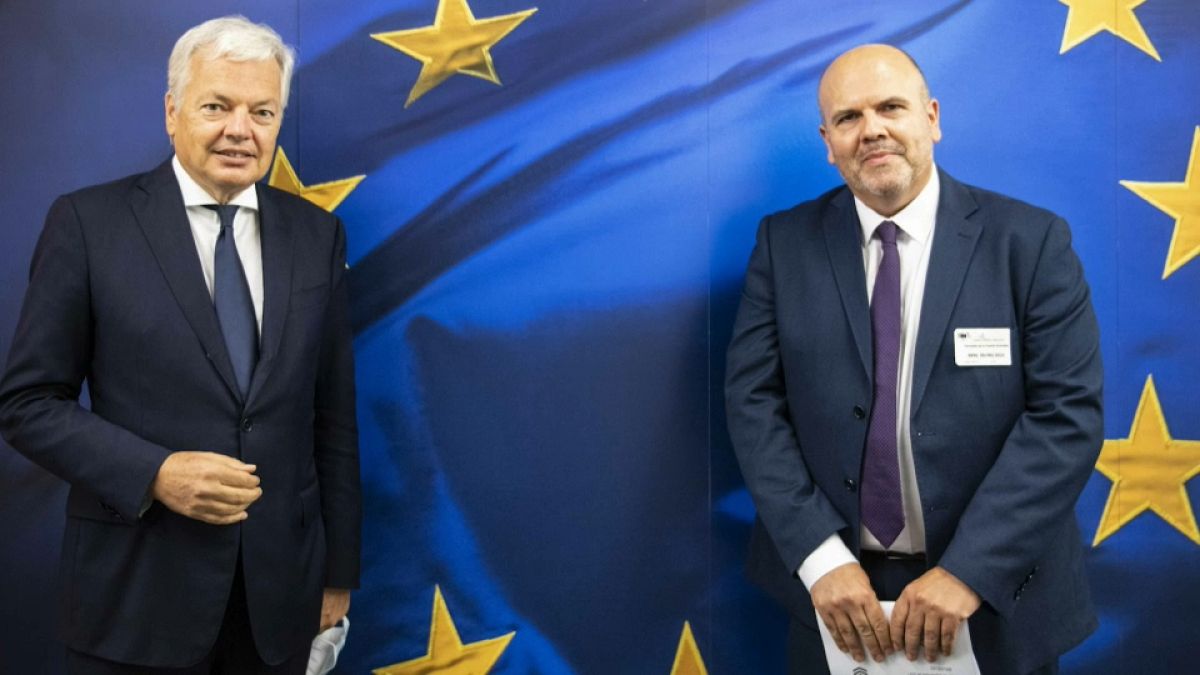EU Justice Commissioner Didier Reynders says the current impasse between the Spanish government and opposition over judicial appointments must be resolved soon.
The European Commission has warned Spain about its current standoff over judicial appointments at the highest level.
For more than three years, the appointment of magistrates to the General Council of the Judiciary (GCJ), which itself appoints judges to both the Constitutional Court and the Supreme Court, has been blocked due to a political dispute between the government and opposition.
In most European countries judicial appointments are done on a mixed basis, that is, selected on the one hand by lawyers and on the other by active judges.
In Spain however, the GCJ is made up of 20 members, all elected by a three-fifths majority in both Parliamentary chambers.
But the EU's justice commissioner, Didier Reynders, underlined on Monday the urgent need to select new members of the GCJ.
"We have a concern about the appearance that slowly we have seen in Spain as in other member states: when there is a blockade and when there is an interim council for the Judiciary and you do not give a clear signal about the reform, it is difficult to maintain the trust of all the different citizens in the system," Reynders said.
"Now it is very important to continue the discussions and to try to organise the best possible renewal of the Council."
Representatives of the main Spanish judges' associations met with the Justice Commissioner on Monday, asking Brussels to mediate the conflict.
Few question the need to change the current system in order to end any arguments of politicisation, since politicians are the ones deciding on the appointments, but right now there is no agreement about when and how.
And although no one is talking about sanctions yet, the issue was raised during Monday's meeting according to Fernando de la Fuente, vice spokesman for Judges for Democracy.
"He has not strictly spoken of consequences, although they have arisen in the conversation. He has explained to us that in the framework of the recovery funds, there are some standards that have to be respected. So, if there is no solution, the moment could arrive that the Commission takes measures against Spain because it is affecting public services," de la Fuente told Euronews.
The situation is affecting both the credibility of the Spanish justice system and its operation, but neither the European Commission nor the Spanish judges believe that the situation is comparable to that of Poland and Hungary.
